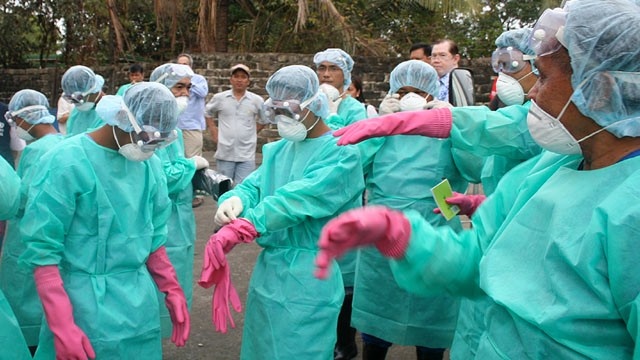With the intention of marking “a turning point” in the intensifying Ebola outbreak plaguing three West African nations, the WHO met with the presidents of all the affected nations Friday to launch a joint $100 million response plan.
Dr Margaret Chan, Director-General of the UN’s World Health Organization (WHO) met the leaders of Liberia, Guinea, Sierra Leone and Cote d’Ivoire in the Guinean capital.
“When well-managed, an Ebola outbreak can be stopped,” said Chan, referencing four decades of experience dealing with Ebola in Africa. “Ebola outbreaks can be contained. Chains of transmission can be broken. Together, we must do so.”
Chan called for an accurate and detailed mapping of the outbreak and an increase in information distribution about the facts of Ebola. Chan also called for an increase in aid workers. The WHO plan also stresses surveillance, particularly in border areas
Among the most serious problems associated with the African outbreak is that the region suffers from a lack of health education. To this point, the UN chief said that Ebola was a social problem, not a medical or public health problem.
“West Africa is facing its first outbreak of Ebola virus disease,” remarked Chan. “This is an unprecedented outbreak accompanied by unprecedented challenges. And these challenges are extraordinary.”
“West Africa’s outbreak is caused by the most lethal strain in the family of Ebola viruses. The outbreak is by far the largest ever in the nearly four-decade history of this disease. It is the largest in terms of geographical areas already affected and others at immediate risk of further spread.
“The current outbreak is moving faster than our efforts to control it,” said Chan. “If the situation continues to deteriorate, the consequences can be catastrophic in terms of lost lives, but also severe socio-economic disruption and a high risk of spread to other countries.”
The Ebola virus rapidly spreading in West Africa has infected 1,323 people, according to the WHO, among whom 729 have died. Of those 729, 60 have been health care workers.
The UN will meet August 6-7 to discuss whether the outbreak constitutes a “public health emergency of international concern.”
By Day Blakely Donaldson
